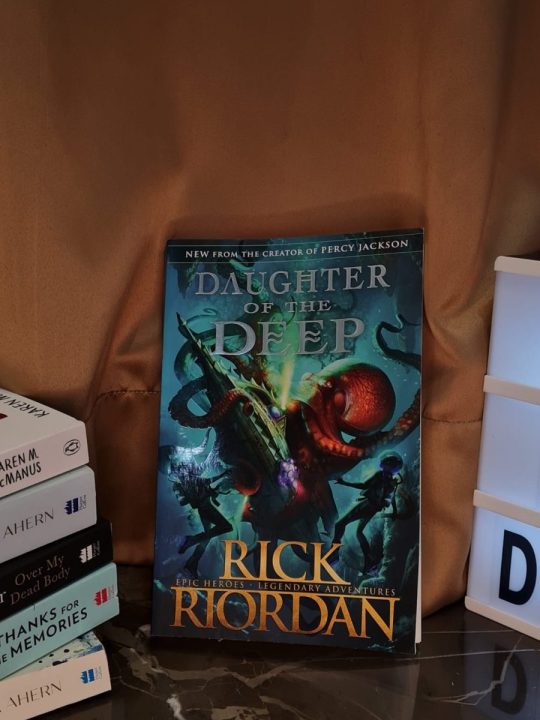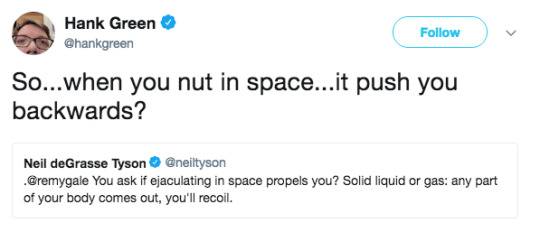#the greeks had socrates y’all have me
Text

He’s a red flag but red means good fortune and love in my culture 😘
#the greeks had socrates y’all have me#hazbin hotel#hazbin hotel fanfiction#hazbin hotel x reader#hazbin hotel self insert#hazbin hotel headcanon#hazbin hotel memes#ms.chismosa speaks#alastor headcanons#alastor x you#alastor the radio demon#alastor smut#hazbin alastor#fuck you alastor#alastor hazbin hotel#hazbin hotel alastor#alastor/reader#alastor x reader#alastor fluff#hazbin alastor x reader#cursed cat alastor
715 notes
·
View notes
Text
the greeks had socrates and y’all have me
39 notes
·
View notes
Text
Percy: The Greeks had Socrates. Y’all have me
#percy jackson#percico#nicercy#percy jackson and the olympians#heroes of olympus#percy x nico#i just reorganized my entire pinterest#it looks so pretty 🤭
79 notes
·
View notes
Text
“The Greeks had Socrates, the British had Shakespeare, and now y’all have me. You’re welcome.”
5 notes
·
View notes
Text
logan is unironically scuttlebutting “the greeks had socrates, y’all have me”
4 notes
·
View notes
Text
Daughter of the Deep- Lives up to the Percy Jackson books?

Hi! The Daughter of the Deep by Rick Riordan is his latest book and I’ll start off by saying that I loved it! It definitely lived up to my previous Percy Jackson expectations. I mean let’s be serious, it can never beat PJ but it is a great book!
Disclaimer- this book is in no way related to any of his previous stories and is NOT set in the Greek, Roman, Norse or Egyptian mythologic worlds. It is a standalone sci-fi book (I really want a sequel though). So any readers out there who want to read a book by Rick Riordan but have held off because they’re all long series, this book is for you! And any Rick Riordan book stans like me, I do not even need to convince y’all to read this book, just read it already.
The Plot/ Summary
Ana Dakkar is a freshman at Harding-Pencroft Academy, a five-year high school that graduates the best marine scientists, naval warriors, navigators, and underwater explorers in the world. Ana’s parents died while on a scientific expedition two years ago, and the only family she’s got left is her older brother, Dev, also a student at HP. Ana’s freshman year culminates with the class’s weekend trial at sea, the details of which have been kept secret. She only hopes she has what it’ll take to succeed. All her worries are blown out of the water when, on the bus ride to the ship, Ana and her schoolmates witness a terrible tragedy that will change the trajectory of their lives.
But wait, there’s more. The professor accompanying them informs Ana that their rival school, Land Institute, and Harding-Pencroft have been fighting a cold war for a hundred and fifty years. Now that cold war has been turned up to a full boil, and the freshmen are in danger of becoming fish food. In a race against deadly enemies, Ana will make amazing friends and astounding discoveries about her heritage as she puts her leadership skills to the test for the first time.
Why you should read Daughter of the Deep
I’ll start by gushing about the diverse representation. Rick Riordan’s books have always had great representation but this one’s diversity was just amazing. The fact that this book was written exclusively with a female protagonist and that she was of Bundeli Indian ancestry made me love it a lot more. From giving representation to brown characters, autism to an orangutan (no, I am not kidding), this book has it all!
This book is full of the dry humor that the author’s books are so famous for, the one that makes you laugh out loud and gives serious chapters the perfect balance. Those perfectly timed lines and comments made me burst out laughing more times than I can count!
This book has twists you never see coming and literally everything you want in a book. Also, can I just say I loved Top and Socrates so much. Rick Riordan’s writing made them larger than life and I loved that Top was an emotional support animal.
I’ve already raved about the diverse representation but can I just say- the addition of religion and that Ana was pure veg giving homage to her ancestry was such a small fact but so important and I love that it was mentioned.
This book is perfect for all ages! Captivating, thrilling and humorous, it has everything you can ask for.
I definitely recommend Daughter of the Deep and I hope you enjoy it if you do read it :)
“I decided staying up all night and finishing my book was more important than being mentally present today.”
#blog#book blog#book blogger#book recommendations#book reviews#must read#reading#rick riordan#sci-fi#daughter of the deep
5 notes
·
View notes
Text
Just realized how I was making a conscious effort to word myself to avoid misgendering or using inappropriate pronouns for a stuffed sloth and I’m honestly so happy about that. I’m reworking language to be more inclusive for the people and things around me and i felt uncomfortable using the pronoun “it” to refer to a stuffed toy because it’s an animal toy and I don’t like using an inanimate pronoun on something that’s living even though the sloth in question isn’t actually living. Okay so probably I just haven’t gotten enough sleep but ALSO this is important to me because I don’t like it when people refer to animals of unknown gender is “it’s” when I’m pretty sure they would prefer to be gendered as “they/thems” which is GOOD that I’m constantly aware of that being important through the language i use but probably unnecessary because gender is a social construct and most animals probably don’t give a damn. I had a friend who preferred “it” as a pronoun. I think I still follow you. Hey. If you’re following me. Idk what your preferred pronouns are and tbh using “it” for you was kinda uncomfortable but i wanted to respect you but I also was worried that you weren’t seeing yourself as a real person with a valuable life. Maybe i was just projecting idk. Socrates. (Not a psychologist but still better than Freud) no auto correct don’t caps that name, shame on you. This is turning into a stream of consciousness, I haven’t done this in so long. I don’t even think I’ve had a conscious stream in so long. Must be the sleep deprivation/chronic insomnia. I’m gonna lay down and just POP like a grape under my own atmospheric conditions and fizzle out. Where was I. Socrates. Wasn’t he the one, hemlock? Sentenced to DIE by poisoning. (For... being gay????? No tell me I’m wrong, I’m definitely wrong. He was too smart. Too progressive. Right? Gay? No? Yes?) and isn’t hemlock poisoning like really super drawn out an painful? Like sheesh guys just give him a knife. Little stab it’s stab. Exanguination. What a way to go. Wow TRIGGER WARNING dni if you have suicidal ideation idk where that even came from that wasn’t me. I’m like poking it with a stick. Okay fine that was totally like leftovers from 5 years ago me. Fine 3 years ago. Or was it five? Idk I’m doing better now I’ve lost count. WHERE WAS IT. Oh yeah. HEMLOCK. Apparently hemlock tress are super common in [REDACTED] and I was also THE actual BEST in the class at tree identification. I remember sitting in that goddamn wooden forest surrounded by these allegedly poisonous trees thinking “how the hell do i get one of these bicces to kill me?” Okay yeah seriously do not read this if you still have suicidal ideation because if this is going where I think it’s going you do not want to go there. don’t worry it’s not that bad I’m a super healthy a-dult now. man I was literally SO confused by these goddamn trees. Like you are NOT TELLING ME you short, flat little pine-ass looking needles can kill me you’re a FUCKING EVERYGREEN. Like people drink actual tea from you??? (Disclaimer: i do not endorse this brand of tea making. Please only make wild tea if you are an experienced forager. There are a lot of things in the woods that can and will make you miserably sick and possibly DIE except possibly hEMLOCK TREES you false advertising sonova - anyway. I’m pretty sure I put one of those flat-pine looking twigs in my actual mouth, sunk my teeth into that evergreen foliage and thought to myself, this is so fucking stupid you are suicidal but you are not a FOOL. And I went down and googled that shit and for your infomation NO. Hemlock trees are NOT the same as poison hemplock, the plant which killlled Socrates. Bummer because i really wanted to die at the time and also Socrates was a bro dude. He was the real og philosopher. Definitely a fav. Not even problematic. Probably. Idk he was an old Greek man he was probably problematic. Misogynist. UNLIKE our poet Sappho who still makes me sad to this day because there are only fragments of her works remaining. And by fragments I mean literal fragments, that
Shit (wow I reached the max for a text block. Achievement achieved. ) what was i saying. Oh. Fragments, like that shit was was literally carved into stone slabs which did the fucking MOST and BOKE into PIECES. Some of which are LOST for EVER meaning we don’t even have complete poems to look at... and THAT GIRLBOSS IS STILL ICONIC. Those immortalized words despite being fragmented still resonated so powerfully with other wlw what we TOOK ON HER NAME. WE SAID CALL US BY Y OUR NAME. Fuck I’m tearing up. I’m getting literally emotional. I’m not even that attracted to girls because I’m like demisexual and don’t really feel sexual attraction and I’m half convinced my attraction to women is a learned behavior from trying to assert myself in a patriarchal society that commodified women and it’s so fucking sucking because that’s another reason I’m so freaking messed up about intimacy with men because i have visceral revulsion towards the concept of being a sexual commodity by the GROWN ASS MEN AROUND ME AS A CHILD. Fuck this shit was so prevalent y’all I was an little Asian girl in the whitest fucking whitey white town and let me tell you it was FETISHIZATION NATION. I m pretty sure I have actual memories blocked away and you know what i don’t even want them back. Fuck you Hydra can take them. WIPE ME. Just kidding, not trying to belittle the actual torture suffered by fictional character bucky Barnes.... how did we get here.
Anyway i have to go now. I’m going to be late for my massage
#mike drop#sayonara#you weeabo bicches#I’m going to my massage#idek what to tag this so i can find this later#lets try this one#send help#but not actually bc I’m social distancing and also i dont like people#haha byeeee
0 notes
Text
The Greeks Developed More Than Scandalous Student-Teacher Relationships... (kind of... a little bit more)

Fig. 1
Rhetoric is a big ol’ word that means a lot of things, mostly bad things. In essence, the regular Joe Shmoe knows very little about rhetoric outside of how politicians utilize it. To the average individual, rhetoric is as empty as the promises a president gives on their campaign trail. Much less, us college students and English majors probably don’t know rhetoric beyond this, especially just starting out. But, as English majors, we use rhetoric very often in our lives and in what we write.
So, if rhetoric isn’t just a tool politicians use, then what the hell is it?
Rhetoric is hard to pin down and its definition varies from one person to another, as well as its uses. The Greeks valued oral speech and utilized rhetoric in large theatres full of audiences or in forums where they discussed ideas and did all that democratic shit. Today, we see rhetoric utilized everywhere in different ways, using different methods from Sophistic to Aristotelian to Platonic. It’s just a matter of identifying what is rhetoric, that it isn’t really bad, and what kind of epistemology are they using. Rhetoric itself is just a mode of a language, of which can be seen and defined in various ways depending on the person (Lee).
More in depth, the use of rhetoric and it’s ‘origin’ can go back as far as the Greeks. Lots of western thinking comes from the Greeks and Romans. Particularly, three branches of rhetoric came from Greek minds: Sophist, Platonic, and Aristotelian. Each has their own epistemology, or theory of knowledge, concerning rhetoric, its uses, and whether or not they even dug it.
Knowing what these guys thought is not only cool, but it opens up a vaster idea of what rhetoric is and how we utilize it every day. It’s not just something politicians use, but is a staple in our essays, articles, and various other modes of writing. It’s just not that obvious at first glance.
The Sophists
The bad boys of rhetoric. Not in the sense that any of the individuals who labeled themselves as a Sophist were in any way rebels and rule breakers, but more so that they had their small moment to shine before everyone shit on their ways of thinking.
To a Sophist there were no absolute truths

Fig. 2
Ignoring the fact that the Jedi themselves believe in absolute truths
The Sophists believed that truth was a social construct. We perceive our own truths and, in essence, tailor our rhetoric to convey that. Sophists believed in building upon our own illusions with different ones—dissoi logoi (Bizzell and Herzberg 47). It’s the Greek way of saying: walk a mile in their shoes. There was always a time and place to utilize this in order to better sway an audience.
Essentially, Sophists saw rhetoric as a tool to use in order to get their way. In the bad version of thinking, this opened up a can of moral worms. With no absolute truth, individuals could construct their own moral principles and utilize rhetoric in a way that benefits them while harming others. Honestly, that’s why a lot of people thought they sucked. When you use rhetoric to get a gold statue of yourself and evade taxes, it doesn’t really help prove your point Gorgias (Smith 44-45).
Not many people like Sophists, as indicated by a vast majority of history, but, hey, my Rhetoric and Writing professor says they’re making a comeback (Lee). Maybe now’s a time to come out to your parents and live your best truth, right? Don’t ask me for advice, though, ‘cause my parents don’t even know my own sexuality.
Platonic
You might know these guys from a philosophy 101 class; they’re pretty famous, maybe in part cause they slammed the Sophists so hard you probably couldn’t really name one off the top of your head.
Unlike their Sophist adversaries, both Plato and Socrates valued the idea of absolute truth . In fact, Plato has an entire allegory to help further the understanding of his own point. You might have heard of Plato’s cave. Wait till you get a load of:

Fig. 3
Plato’s entire idea of our world and how we perceive it comes from a theory about the World of Forms, as he calls it. In his allegory, Plato describes a cave of people who can only perceive the world in the form of shadows. One dude gets out into this other world and is surprised to see that shit isn’t how he once understood it. Too bad he can’t tell his friends cause they don’t know what the hell he’s saying or who he is other than a weird shadow (Lee).
In other words, all of our knowledge comes from this other world and in the material world we can’t understand that. The goal both Plato and Socrates have is getting to this bank of knowledge in as pure a form as we can. They valued morality a lot, which is in part why they didn’t really like the Sophists and by extension rhetoric (Smith 49-50).
So why are they considered a part of rhetoric? Well, what they did was very much rooted in rhetoric, they just didn’t call it that. Socrates called his teaching method dialectics, which is essentially a one-on-one between him and another person wherein he acted liked a dumbass and asked ‘why?’ a bunch. In a less casual way, dialectics acted as platform to learn more from one another; it dissected a field one thought they were an expert in until they realized that they know nothing and perhaps looked at their ideas differently. That was Socrates big thing: y’all know nothing. Which, in relation to their epistemology, is very true. We can’t really know anything until we get back to that world of forms (49).
Dialectics is essentially just another name for fancy rhetoric ‘cause boo Sophists, they’re dumb and they suck. In part because dialectics itself, in a vacuum, assumes that both individuals are equal, but can often be used to persuade an individual that their idea isn’t all that or their way of thinking is wrong. Since humans aren’t perfect, the whole idea of dialectics can just be one, big, sarcastic power trip (Lee).
Aristotelian
Which leads us to our final boy: Aristotle. Unlike Plato and Socrates, whose ideas of another, immaterial world is very much akin to many religions and is more spiritual, Aristotle was more grounded in the reality he could perceive. What we could observe with our senses make up his absolute truth. He was a science man, basically (Smith, 66).

Fig. 4
We always ask if we can... but do we ever ask if we should?
Other than his main epistemology (absolute truths come from observations of the material world), Aristotle is most known for his main theories behind rhetoric, the Artistic Proofs: ethos, pathos, and logos. These appeals make up much of our rhetoric today, from advertisements to the speeches our representatives give even to the methods our professors teach (Bizzell and Hersberg 171).
Ethos deals with credibility. When we think of ethos, we think of what makes up the speaker or writer, who the hell they think they are and what they do best. If you have a Ph.D in the given field you’re talking about, chances are people might listen to you. Unless you’re audience is full of anti-vaxxers, then those 40 years of your life in medical school suddenly mean nothing (Lee).
Pathos deals with emotion, something a lot of people tend to do these days. Emotion is an easy thing to manipulate and folks tend to take advantage of that fact by evoking certain topics: veterans, victims of shootings, that Sarah McGlachlan song with all those poor puppies and kittens—you know the one. In the aaaarms of an angel... yeah that shit hits you right in the feels. It makes you feel bad for not donating or it makes you feel empowered and taps into that raw passion you feel. Lots of rhetoric does this ‘cause it’s often the easiest, even when it’s the most obvious thing (Lee).
Then there’s logos, which appeals to logic. You got your common sense and stuff that you back up with facts and figures. They’re the deductive arguments, which are things we presume to be true like: killing people is bad, Rob killed a dude, therefore Rob is bad (Bizzell and Hersberg 171-172).

Fig. 5
All These Greek Dudes Tho
They all make up the basis of rhetoric and the many epistemological ideas that we still attribute to rhetoric and utilize to this day, even if we don’t know we’re utilizing rhetoric.
Of course, sadly, none of these dudes liked the Sophists (except maybe Aristotle, maybe not) and therefore, not many of them liked rhetoric even if what they did was rhetoric in their own sense. But, even then, many of today’s uses of rhetoric do tend to combine all these modes of thinking.
Even if Sophistic thinking was looked down upon in the ancient Greek days, the way they observe and perceive the world mingles with Aristotle’s own ideas behind rhetoric. We all observe our truths, but Aristotle simply believed there are absolute truth’s in our observable world. In that same factor, Aristotle, in some way, married these two schools of thought together without just copying their ideas. Being the last of the bunch and the youngest, probably, he had a lot to build from.
To the sophist rhetoric was a tool. To Plato and Socrates, rhetoric was that evil thing used to persuade others in a malicious manner (but can be used righteously, as long as you aren’t a dirty Sophist) (Smith 66). Those two valued dialectic and the pursuit of knowledge through questioning and admitting that we know nothing. Aristotle, though, believed that rhetoric and dialectic could play off of each other. Knowledge needed a platform to be heard after it had been thoroughly dissected through dialectics and that platform was rhetoric (Filiquarian 7).
We see that in scientific queries and theories. The gathering of knowledge through experimenting, then typing all of that data up to show why the hell it’s important and they deserve more grant money.
There’s many ways these ideas can play off of each other, but the main thing is that much of rhetoric tends to deal with persuasion, or solving something or even just proving something. A lot of the tools these individuals used are all ways that one could persuade an audience, whether that be through ethos or the use of dialectics or convincing someone that their truth is wrong and that this is the truth they should believe in.
Of course, there’s many ways to go about that and much of it comes down to whether you believe in absolute truths or not. Or whether those absolute truths deal with a realm beyond our own or the material world we live in. The foundation we leap from develops our mode of thinking and how we aim to use rhetoric in the long run.
In Conclusion
Rhetoric is a complex and somewhat of a chaotic thing, but there are different categories in which we can classify certain rhetoric devised by the thoughts and ideas of our Greek friendos. And a lot of deals with truth and how we perceive the truth, whether it’s absolute or not, and whether it’s otherworldly or worldly.
Rhetoric is a strong tool and skill that comes in handy in our everyday lives and knowing the foundation of where that knowledge comes from aids us in figuring out how to utilize that tool effectively. So it’s more than just empty and more than just the bad that we see detailed on our television screens. It’s in our newspapers and articles, the scholarly papers we read, and even in how we talk about certain things to certain people.
Works Cited
Fig. 1. Johnson, Harry J. Temple of Aphaea in Aegina, Greece. Oil on Canvas. <http://www.artnet.com/artists/harry-john-johnson/temple-of-aphaea-in-aegina-greece-GhlRGGaIy9s7SXv7lEEJxQ2>
Fig. 2. Only a Sith Deals in Absolutes. <https://gifimage.net/only-a-sith-deals-in-absolutes-gif-4/>
Fig. 3. HOAG. Plato’s Rave. <https://www.teepublic.com/t-shirt/2552076-platos-rave>
Fig. 4. Green, Hank. Tweet. <https://knowyourmeme.com/memes/when-you-nut-in-space-it-push-you-backwards>
Fig. 5. Cucurg. Cool Motive Still Murder. December 31, 2014. <http://cucurg.tumblr.com/post/106724297942>
Bizzell and Herzberg. “Gorgias.” Classical Rhetoric.
Bizzell and Herzberg. “Plato.” Classical Rhetoric.
Bizzell and Herzberg. “Aristotle.” Classical Rhetoric.
“Aristotle.” Rhetoric Book I. Filiquarian Publishing, LLC.
Lee, Rory. Intro to Rhetoric and Writing ENG 210. Class Lecture.
Smith. “Socrates and Plato.” The Greek Sophistication of Rhetoric from Thales to Plato.
Smith. “Gorgias.” The Greek Sophistication of Rhetoric from Thales to Plato.
Smith. “Aristotle’s Rhetoric.” Rhetoric in the Ancient World.
0 notes
Text

No bc I can fix him
#the greeks had socrates y’all have me#hazbin hotel#hazbin hotel fanfiction#hazbin hotel x reader#hazbin hotel self insert#hazbin hotel headcanon#adam hazbin#adam first man#hazbin hotel adam x reader#adam x reader#hazbin adam#adam hazbin hotel#hazbin hotel adam#adam smut#adam#adamsapple#adam x lute#hazbin hotel memes#hazbin hotel au
569 notes
·
View notes
Text






It’s gotten bad
#the greeks had socrates y’all have me#hazbin hotel#hazbin hotel fanfiction#hazbin hotel x reader#hazbin hotel self insert#hazbin hotel headcanon#hazbin hotel alastor#alastor x reader#fuck you alastor#hazbin hotel memes#vox x reader x alastor#alastor smut#alastor the radio demon#hazbin alastor#alastor hazbin hotel#alastor#human alastor
4K notes
·
View notes
Text

Vox came to me in a dream and told me to post this.
#like a prophet#the greeks had socrates y’all have me#hazbin hotel#hazbin hotel x reader#hazbin hotel fanfiction#hazbin hotel self insert#hazbin hotel alastor#hazbin hotel headcanon#hazbin hotel smut#alastor x reader#vox x reader x alastor#alastor x vox#radiostatic#fuck you alastor#alastor smut#alastor the radio demon#hazbin alastor#alastor hazbin hotel#the radio demon#hazbin hotel vox
5K notes
·
View notes
Text

If the shoe fits
#the greeks had socrates y’all have me#hazbin hotel#hazbin hotel x reader#hazbin hotel alastor#hazbin hotel fanfiction#alastor x reader#hazbin hotel smut#fuck you alastor#alastor the radio demon#hazbin alastor#alastor#alastor hazbin hotel#the radio demon
2K notes
·
View notes
Text

I mean am I wrong??
#the greeks had socrates y’all have me#hazbin hotel#hazbin hotel x reader#hazbin hotel fanfiction#hazbin hotel smut#hazbin hotel adam x reader#adam hazbin hotel#hazbin hotel adam#adam x reader#guitarspear#hazbin hotel headcanon#hazbin hotel self insert#Adam first man#guitar solo fuck yeah#hazbin adam
2K notes
·
View notes
Text

Not naming names but you know who you are
#the greeks had socrates y’all have me#hazbin hotel#hazbin hotel x reader#hazbin hotel fanfiction#hazbin vox#vox hazbin hotel#vox x reader#vox#hazbin hotel vox#voxval#hazbin hotel headcanon#hazbin hotel oc#hazbin hotel self insert
1K notes
·
View notes
Text
I feel bad for my future husband bc I just know ima be making him dress up as Alastor in bed. Ima be like
“cmon babe put on the red wig and pinstripe suit”
“Yes honey 😔”
#the greeks had socrates y’all have me#hazbin hotel#hazbin hotel fanfiction#hazbin hotel x reader#hazbin hotel self insert#fuck you alastor#hazbin hotel headcanon#hazbin hotel alastor#alastor x reader#hazbin hotel memes#alastor smut#alastor the radio demon#human alastor#hazbin alastor#alastor hazbin hotel#alastor#alastor x vox#alastor headcanons#alastor altruist#the radio demon#radio demon x reader#radio demon#radiostatic#radioapple#hazbin hotel smut#alastor x you#alastor x y/n#alastor x oc#Alastor lemon
1K notes
·
View notes
Text

Here’s a luci one for all you Apple daddy simps out there
#the greeks had socrates y’all have me#hazbin hotel#hazbin hotel x reader#hazbin hotel fanfiction#lucifer morningstar#lucifer magne#hazbin hotel lucifer#hazbin hotel Lucifer x reader#lucifer x reader#hazbin lucifer#hazbin lucifer x reader#Lucifer Morningstar fanfiction
687 notes
·
View notes